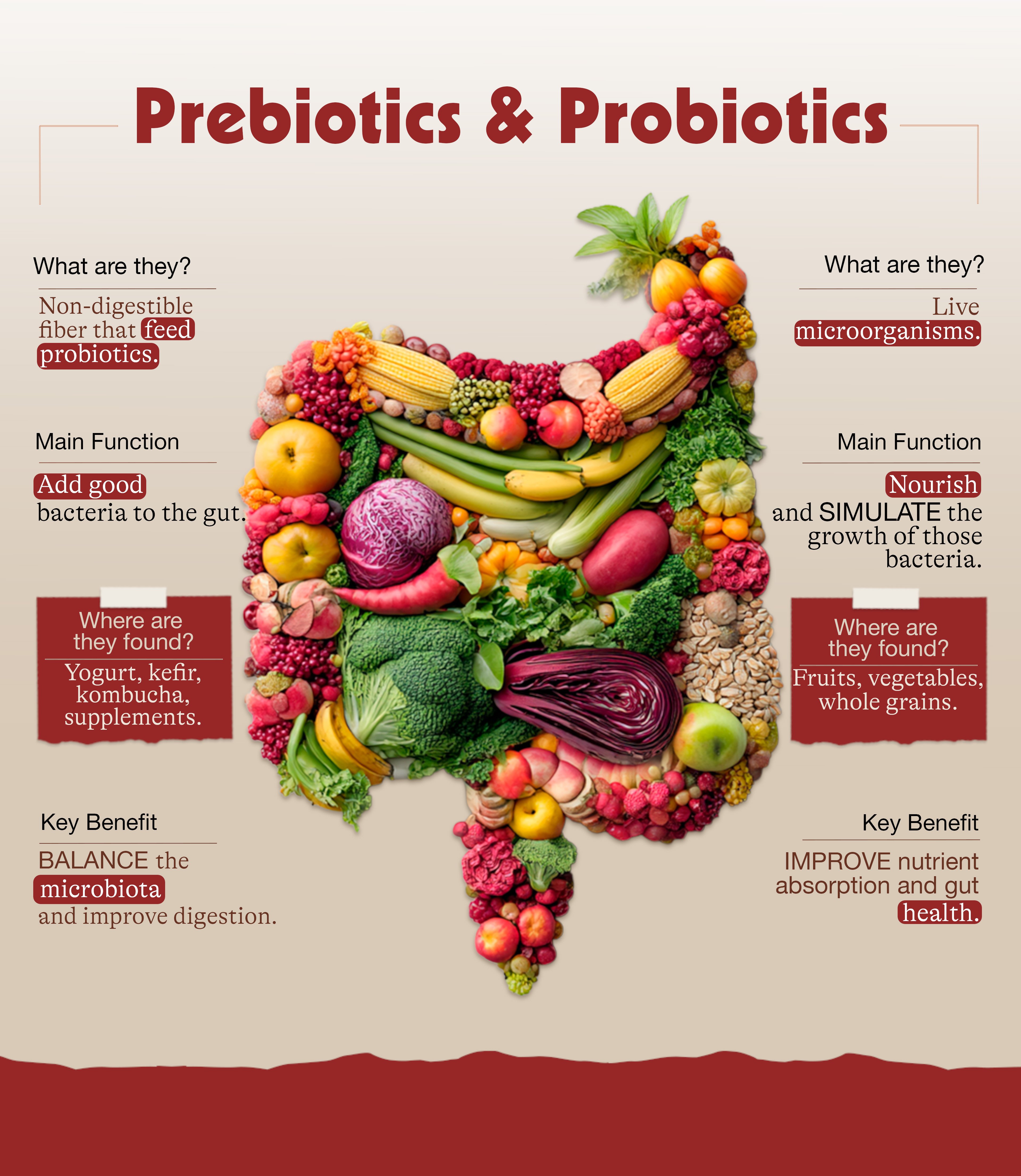Prebiotics and probiotics are often used together, and although they sound similar, they do not mean the same thing. Both play essential roles in gut health, the immune system, and overall well-being.
If you want to learn more about the difference between prebiotics and probiotics, this information will interest you.
What Are Probiotics?
Probiotics are live microorganisms that, when consumed in adequate amounts, have beneficial effects on health.
Their best-known function is to maintain the balance of the intestinal microbiota—the community of trillions of bacteria in our digestive system that influences functions as diverse as digestion, immunity, and even mood.
When this balance is disrupted, for example, after taking antibiotics, during periods of stress, or due to a lack of dietary variety, problems such as diarrhea, inflammation, or indigestion can arise.
This is where probiotics come in; by reintroducing beneficial bacteria, they help restore the intestinal flora and strengthen the body's natural defenses.

Benefits for gut and immune health
Clinical studies indicate that the use of probiotics offers significant benefits:
- They improve digestion and nutrient absorption, which reduces symptoms like gas and bloating.
- They strengthen the immune system, as a significant part of the body's defenses is regulated in the gut.
- They prevent antibiotic-associated diarrhea by restoring bacterial balance.
- They contribute to the management of irritable bowel syndrome (IBS) and other digestive disorders.
Probiotics are found in fermented foods such as yogurt with live cultures, kefir, kombucha, miso, tempeh, and sauerkraut. There are also supplements with specific strains (like Lactobacillus or Bifidobacterium) that are used according to each person's needs.
What Are Prebiotics?
Prebiotics are types of non-digestible fiber that serve as "food" for the beneficial bacteria in the gut—that is, for probiotics. They are not live microorganisms but compounds that help probiotics thrive and perform their function.
The International Scientific Association for Probiotics and Prebiotics (ISAPP) defines them as a substrate used by microorganisms to produce specific changes in the composition or activity of the intestinal microbiota, providing health benefits.
You can find natural prebiotics in inulin (from chicory, artichoke, asparagus), fructooligosaccharides (found in bananas, onions, and garlic), and some other foods like wheat bran and oats.
As for their benefits, prebiotics stimulate the growth of healthy intestinal bacteria, improve bowel regularity, and enhance the absorption of minerals like calcium and magnesium.
Key Differences Between Prebiotics and Probiotics
Although they work together, prebiotics and probiotics are entirely different.

How to Include Both in Your Diet
To get the full benefits, it is ideal to combine prebiotics and probiotics in your daily diet.
- Unsweetened Greek yogurt with banana and oats.
- TOYOU's Granola Snack Bar, with oats, pecans, and almonds.
- Salad with asparagus, onion, or artichoke.
- Miso soup or tempeh with vegetables.
As you can see, knowing the difference between prebiotics and probiotics allows you to make better choices about what to include in your diet to care for your gut, immune system, and overall well-being. Probiotics provide good bacteria, while prebiotics feed and strengthen them.
Source:
Probiotics and their Beneficial Health Effects.
International Scientific Association for Probiotics and Prebiotics (ISAPP).